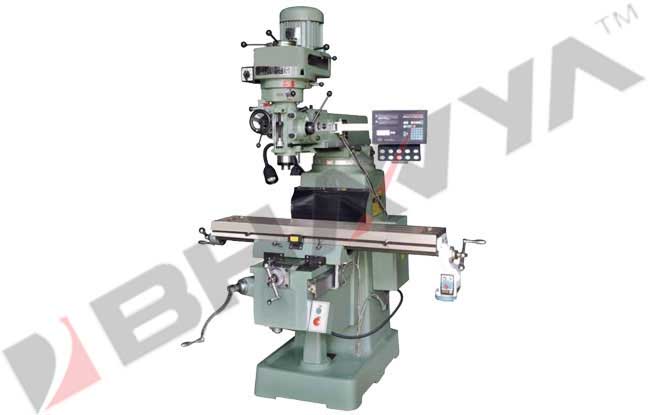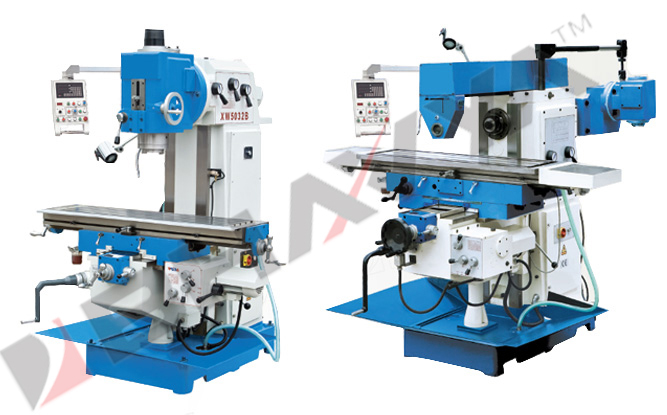In the heart of Europe, artisanal workshops continue to uphold centuries-old traditions of craftsmanship, producing exquisite works that blend skill, passion, and heritage. In this narrative of craftsmanship, milling machines have emerged as crucial tools, harmonizing tradition with innovation. This article delves into the realm of European artisanal workshops, exploring how milling machines are shaping the path to crafting excellence.
Table of Contents
- Introduction
- The Legacy of European Artisanal Workshops
- Preservation of Traditions
- Evolution in a Modern World
- The Role of Milling Machines
- Precision and Versatility
- Enhancing Artisanal Techniques
- Bridging Tradition and Innovation
- Customization and Design Freedom
- Precision in Replication
- A Symphony of Skill and Technology
- Collaborative Creativity
- Preserving Craftsmanship
- Challenges and Adaptation
- Skill Transfer to New Generations
- Balancing Automation and Handwork
- Nurturing the Artisanal Legacy
- Education and Apprenticeships
- Encouraging Patronage
- Conclusion
Introduction
European artisanal workshops stand as living testaments to the age-old tradition of craftsmanship. Rooted in history and driven by a commitment to excellence, these workshops craft items of unparalleled beauty, each bearing the mark of a skilled artisan. Amidst this devotion to heritage, milling machines have taken center stage, revolutionizing the way artisans work while preserving the essence of their craft.
The Legacy of European Artisanal Workshops
Preservation of Traditions
European artisanal workshops are custodians of cultural heritage. Passed down through generations, these workshops preserve techniques, aesthetics, and values that resonate with history and culture.
Evolution in a Modern World
While honoring tradition, artisanal workshops also embrace modernity. This delicate balance between time-honored practices and contemporary innovation defines the unique character of European craftsmanship.
The Role of Milling Machines
Precision and Versatility
Milling machines bring precision and versatility to artisanal workshops. With their ability to precisely shape and carve materials, these machines empower artisans to create intricate designs and complex structures that were once unimaginable.
Enhancing Artisanal Techniques
Milling machines complement artisanal techniques. These tools serve as extensions of the artisan’s hand, amplifying their capabilities and allowing them to explore new avenues of creativity.
Bridging Tradition and Innovation
Customization and Design Freedom
Milling machines facilitate customization without compromising artistic vision. Artisans can translate their concepts into reality with precision, breathing life into unique creations that resonate with personal and cultural narratives.
Precision in Replication
Beyond creation, milling machines excel in replication. They enable artisans to produce faithful replicas of historical pieces, preserving heritage while ensuring accuracy and authenticity.
A Symphony of Skill and Technology
Collaborative Creativity
Milling machines are collaborators in the artistic process. They work in harmony with artisans, enhancing their abilities and pushing the boundaries of what can be achieved.
Preserving Craftsmanship
Milling machines contribute to the sustainability of craftsmanship. They attract new generations to the craft by infusing it with technology, ensuring that the legacy of artisanal workshops endures.
Challenges and Adaptation
Skill Transfer to New Generations
Transferring artisanal skills to younger generations is a challenge. Integrating technology like milling machines can bridge the generational gap, making craftsmanship appealing to a tech-savvy audience.
Balancing Automation and Handwork
While technology enhances efficiency, it must harmonize with the handwork that defines artisanal creations. Striking this balance preserves the human touch that makes each piece unique.
Nurturing the Artisanal Legacy
Education and Apprenticeships
Artisanal workshops must invest in education and apprenticeships to ensure the continuity of craftsmanship. By combining traditional training with technological exposure, a new generation of artisans can emerge.
Encouraging Patronage
Sustaining artisanal workshops requires patronage from individuals who value the unique and handcrafted. Consumers play a vital role in ensuring that these workshops continue to thrive.
Conclusion
European artisanal workshops are guardians of history, culture, and craft. Amidst the evolving landscape of technology, milling machines emerge as integral partners, enriching artisanal techniques and fostering innovation. As artisans embrace these tools, they continue to produce works that not only celebrate tradition but also serve as symbols of ingenuity and creativity. The narrative of European craftsmanship remains a blend of mastery, inspiration, and the seamless integration of skill and technology, all in pursuit of crafting excellence that transcends time.







